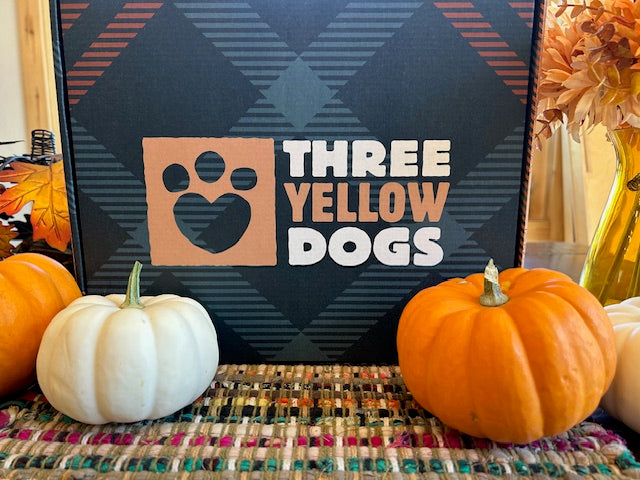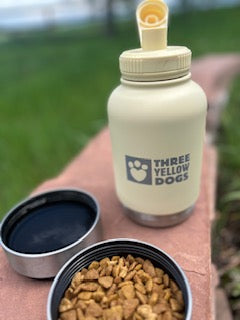In honor of National Poison Prevention Awareness month I thought it would be a great idea to discuss pet poisoning for this week’s blog. Most people are aware that chocolate is dangerous to dogs, but there are a ton of different toxins that can harm your pet, ranging from various foods, medications and household plants, just to name a few.
According to WebMD, each year, there are more than 400,000 cases of pet poisoning in the U.S. alone. A majority of the cases come from common foods and medications we humans take on a daily basis.
Throughout this article I will go over the various toxins, warning signs and symptoms, and the actions we need to take in order to help our four-legged friends. Understanding dog poisoning is crucial for pet owners to ensure the safety and well-being of their furry companions. Let’s take a look and fetch some knowledge.
Common Toxic Substances: Dogs can be poisoned by a wide range of substances found in their environment. Common toxic substances include:
- Human medications: Acetaminophen (Tylenol),Alprazolam (Xanax), Amphetamine/dextroamphetamine (Adderall), Aspirin, Clonazepam (Klonopin), Duloxetine (Cymbalta), Fluorouracil (Tolak, Efudex, Fluoroplex) and Ibuprofen (Advil, Midol, Motrin, etc.)
- Household chemicals: Such as cleaning products, pesticides, antifreeze
- Toxic foods: Alcoholic beverages, apple seeds, apricot pits, avocados, cherry pits, candy (particularly chocolate—which is toxic to dogs, cats, and ferrets—and any candy containing the toxic sweetener Xylitol), chives, coffee (grounds, beans, and chocolate-covered espresso beans), garlic, grapes, gum (can cause blockages and sugar-free gums may contain the toxic sweetener Xylitol), hops (used in home beer brewing), macadamia nuts, moldy foods, mushroom plants, mustard seeds, onions, onion powder and onion flakes, peach pits, potato leaves and stems (green parts), raisins, rhubarb leaves, salt, tea (because it contains caffeine), tomato leaves and stems (green parts), walnuts, xylitol (artificial sweetener that is toxic to pets) and yeast dough
- Plants: Such as Aloe Vera, various Ivy plants, Jade, Sago Palm, Elephant Ear, Lilies, Azaleas, Rhododendrons and certain mushrooms, just to name a few.
- Rodenticides and insecticides: If you have domestic animals it is crucial that you use natural pesticides. We personally have a barn cat and he does a great job keeping our home free of rodents.
- Heavy metals: arsenic, copper, lead, mercury and zinc.
- Veterinary medications (when improperly administered)
Now that we have discussed some of the toxins that can affect your furbaby let's look at some of the signs and symptoms.
Signs and Symptoms: Symptoms of dog poisoning can vary widely depending on the substance ingested and the amount consumed. Common signs of poisoning in dogs include:
- Vomiting and diarrhea
- Lethargy and weakness
- Loss of appetite
- Seizures or tremors
- Difficulty breathing
- Excessive drooling
- Changes in urination or defecation
- Jaundice (yellowing of the skin and eyes)
- Unusual behavior
Immediate Actions: If you suspect your dog has been poisoned, it's crucial to act quickly:
- Remove your dog from the source of poison to prevent further exposure.
- Contact your veterinarian or an emergency animal hospital immediately for guidance.
- Provide any relevant information about the suspected poison, such as the substance ingested, the amount, and the time of ingestion.
- Do Not attempt to induce vomiting or administer any home remedies without professional advice, as this can sometimes worsen the situation.
- Inducing vomiting or administering activated charcoal to absorb the toxin
- Intravenous fluids to maintain hydration and flush out toxins
- Medications to control symptoms such as seizures or vomiting
- Specific antidotes for certain toxins, if available
- Supportive care, including monitoring vital signs and providing oxygen therapy if necessary
- Keep toxic substances out of reach, preferably in locked cabinets or high shelves.
- Store medications, household chemicals, and pesticides securely.
- Be cautious with plants and ensure they are not toxic to dogs.
- Dispose of hazardous materials properly, including leftover medications and chemicals.
- Supervise your dog when outdoors and prevent access to areas treated with pesticides or rodenticides.
- Be aware of common toxic foods and avoid feeding them to your dog.
- Consider pet-proofing your home and yard to minimize the risk of exposure to toxins.
Emergency Preparedness:
- Keep a pet first aid kit and the phone number of your veterinarian or an emergency animal hospital readily available.
- Familiarize yourself with basic first aid techniques and know what to do in case of poisoning emergencies.
- Seek Professional Help: Always seek professional veterinary assistance if you suspect your dog has been poisoned. Prompt treatment can significantly improve the outcome and prevent serious complications or fatalities.
Depending on how a particular substance affects your dog’s body and how much was ingested or inhaled, pet poisoning symptoms can include gastrointestinal and neurological problems, cardiac and respiratory distress, coma, and even death. By being aware of potential toxins, taking preventive measures, and knowing how to respond in case of poisoning emergencies, you can help protect your dog's health and well-being. Regularly educate yourself about new potential hazards and stay vigilant to keep your furry friend safe. God forbid our fur babies get poisoned, but if they do it is crucial that you are able to help them get better.
***If you feel that your dog has been exposed to a toxin please act immediately. If you have any questions regarding poisoning please call ASPCA Animal Poison Control Center (APCC) at (888) 426-4435. Experts at the APCC are available to answer questions and provide guidance 24 hours a day for a consultation fee. Another option is the Pet Poison Hotline at (855) 764-7661.***
Take care of each other and love each other well.🐾❤️













